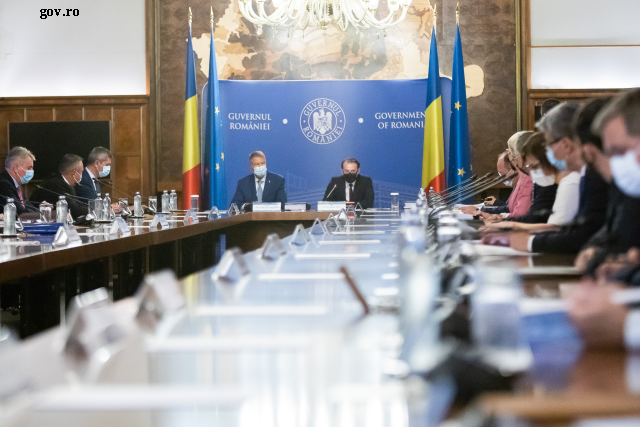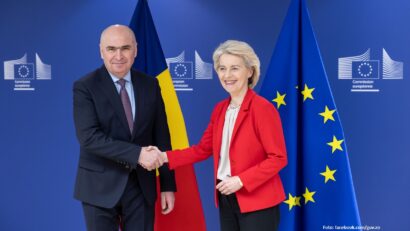“Educated Romania” project, taken on by the government
The government takes responsibility for implementing the presidential project “Educated Romania

Ştefan Stoica, 15.07.2021, 14:00
Launched by president Klaus Iohannis, the “Educated Romania initiative has just turned into a governmental project. The Cabinet will come up with a legislative package containing reforms in the education sector and funding for the relevant goals. The legislation is to be finalised by 1 October, and the financial resources will come from the state budget and from the National Recovery and Resilience Plan.
The project targets the improvement of school infrastructure, of teacher training and of the education process. A developed country, with a sound democratic system, requires educated and informed citizens, said president Iohannis, himself a teacher, and a politician whose presidential terms in office focused on education.
Klaus Iohannis: “We cannot go on with such high dropout and functional and scientific illiteracy rates. For these problems, Educated Romania comes up with concrete solutions, with ambitious yet realistic goals, measures and targets. Specific targets include cutting the early dropout rate, the functional illiteracy rate, ensuring basic digital skills for both teachers and students, developing vocational education and increasing the number of higher education graduates.
According to PM Florin Cîţu, the government aims to cut functional illiteracy from 50 to 20% by 2030, and to reduce school dropout. By 1 August, an inter-ministry group will be set up, which will be monitoring the project. The group will be chaired by the PM, with the education minister Sorin Cîmpeanu as deputy chairman. Cîmpeanu emphasised that a new political agreement is necessary, so as to prevent changes in the relevant legislation in case other parties come to power.
Sorin Cîmpeanu: “The first task for the inter-ministry group to be set up by 1 August will be to decide whether to amend the current education law, or to draw up separate laws on undergraduate and graduate education, whether academic research will be integrated in the graduate education system, and whether the law will incorporate regulations on the teaching profession. This is the first task on which this group will have to focus, and its political composition will be important because ultimately the bill will go to Parliament for endorsement. We need consultations to identify a common denominator acceptable for all political parties, so that we may ensure predictability in the education system.
After Romanias NATO and EU accession, the overhauling of the countrys failing education system might be the most important national project, transcending political differences. Its success would be vital for the future generations ability to thrive in a constantly changing world. (tr. A.M. Popescu)






























